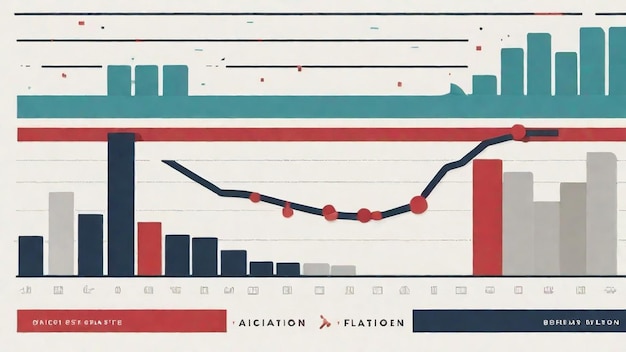US Economy Feels The Pinch: Analyzing The Impact Of The Canadian Travel Boycott

Table of Contents
Decline in Tourism Revenue: A Major Blow to US Businesses
A decrease in Canadian tourist spending represents a substantial blow to numerous US businesses. While precise figures for a hypothetical full boycott are unavailable, we can extrapolate from existing data. Prior to the pandemic, Canadian tourists contributed billions of dollars annually to the US economy. A significant reduction in their numbers would translate to a dramatic loss in revenue, particularly affecting border states like Washington, New York, and Michigan, as well as popular tourist destinations such as Florida, California, and New York City.
- Percentage decrease in Canadian tourist arrivals: While we are analyzing a hypothetical boycott, historical data shows that even minor dips can significantly impact businesses. A hypothetical 25% decrease in Canadian tourist arrivals could lead to substantial losses.
- Estimated loss in revenue for specific sectors: The hospitality sector would be hardest hit, with hotels, restaurants, and entertainment venues facing significant revenue shortfalls. Retailers also stand to lose considerable income from decreased consumer spending by Canadian tourists.
- Case studies illustrating the impact on individual businesses: Imagine a small family-run hotel in Niagara Falls, New York, heavily reliant on Canadian visitors. A significant drop in tourism could threaten its viability, leading to job losses and economic hardship for the local community.
Impacts Beyond Tourism: Examining the Wider Economic Ripple Effects
The impacts of a reduced Canadian tourist presence extend far beyond the tourism sector. The ripple effect touches numerous related industries, creating a wider economic downturn. Reduced spending by Canadian tourists directly affects transportation industries, such as airlines and rental car companies, impacting their revenue and potentially leading to job cuts. Furthermore, the decrease in consumer spending ripples through the retail sector, affecting sales and potentially leading to further job losses. The potential impact on the US dollar exchange rate, while complex, cannot be ignored. A decrease in Canadian tourism could contribute to downward pressure on the dollar.
- Impact on transportation industries (airlines, rental cars): Airlines offering cross-border flights and rental car agencies operating near border crossings would experience a significant reduction in demand.
- Effects on retail sales and consumer spending: Reduced tourist spending would lead to lower sales in retail outlets, particularly those frequented by Canadian visitors, potentially leading to reduced employment.
- Potential job losses in related sectors: The cumulative effect across various sectors could result in significant job losses, affecting both directly and indirectly employed individuals.
Understanding the Reasons Behind a Hypothetical Boycott
Understanding the underlying causes of a hypothetical Canadian travel boycott is crucial for developing effective mitigation strategies. Several factors could contribute to such a situation. Political tensions between the two countries, economic downturns in Canada affecting disposable income, safety concerns, or unfavorable exchange rates could all play a role. Analyzing public sentiment and media coverage concerning travel to the US is equally important.
- Specific political or economic events impacting travel decisions: Major political events or economic instability in either country could deter Canadians from traveling to the US.
- Public perception and media coverage influencing the boycott: Negative media coverage or public perception of safety or political instability in the US could significantly impact travel decisions.
- Analysis of Canadian traveller sentiment: Understanding the reasons behind Canadian travelers' decisions is paramount to addressing the issue effectively.
Potential Mitigation Strategies for the US Economy
To mitigate the negative economic impacts of a hypothetical Canadian travel boycott, proactive strategies are necessary. Targeted marketing campaigns highlighting the unique attractions and value offered by the US, coupled with travel incentives, could attract Canadian tourists back. Addressing any safety concerns and improving border crossing efficiency are equally crucial. Furthermore, government initiatives, such as tax incentives or subsidies for tourism-related businesses, could help alleviate the financial burden.
- Examples of successful tourism marketing campaigns: Analyzing successful campaigns targeting specific demographics could inform future strategies to attract Canadian tourists.
- Proposals for government incentives or subsidies: Government support for tourism businesses could provide much-needed relief during a period of reduced tourism.
- Strategies for improving border crossing efficiency and safety: Streamlined border processes and enhanced security measures could help to alleviate safety concerns and encourage travel.
Conclusion: Assessing the Long-Term Implications of a Hypothetical Canadian Travel Boycott
A hypothetical Canadian travel boycott would have far-reaching and potentially devastating consequences for the US economy. The significant losses in revenue and job opportunities across various sectors cannot be understated. Understanding the reasons behind any decline in Canadian tourism is critical for formulating effective mitigation strategies. Businesses and policymakers must address this issue proactively, developing and implementing strategies to prevent or at least lessen the impact of a future "Canadian travel boycott." We encourage readers to share their thoughts and perspectives on this crucial issue, contributing to a more informed discussion on how to safeguard the US economy from this potential threat.

Featured Posts
-
 Possession 1981 Exploring The Complex Relationship Between Sister Faith And Sister Chance
Apr 27, 2025
Possession 1981 Exploring The Complex Relationship Between Sister Faith And Sister Chance
Apr 27, 2025 -
 Us China Trade War Bill Ackmans Assessment Of Times Impact
Apr 27, 2025
Us China Trade War Bill Ackmans Assessment Of Times Impact
Apr 27, 2025 -
 Thueringens Reptilien Und Amphibien Der Neue Atlas Ist Da
Apr 27, 2025
Thueringens Reptilien Und Amphibien Der Neue Atlas Ist Da
Apr 27, 2025 -
 Logra Tus Objetivos La Garantia De Gol De Alberto Ardila Olivares
Apr 27, 2025
Logra Tus Objetivos La Garantia De Gol De Alberto Ardila Olivares
Apr 27, 2025 -
 Robert Pattinson Knives And A Horror Movie A Sleepless Night
Apr 27, 2025
Robert Pattinson Knives And A Horror Movie A Sleepless Night
Apr 27, 2025
Latest Posts
-
 Ftcs Appeal Challenges Microsofts Activision Blizzard Acquisition
Apr 28, 2025
Ftcs Appeal Challenges Microsofts Activision Blizzard Acquisition
Apr 28, 2025 -
 Future Of Microsoft Activision Merger Uncertain After Ftc Appeal
Apr 28, 2025
Future Of Microsoft Activision Merger Uncertain After Ftc Appeal
Apr 28, 2025 -
 Microsoft Activision Deal Ftcs Appeal And What It Means
Apr 28, 2025
Microsoft Activision Deal Ftcs Appeal And What It Means
Apr 28, 2025 -
 Ftc Appeals Activision Blizzard Acquisition Microsoft Deal In Jeopardy
Apr 28, 2025
Ftc Appeals Activision Blizzard Acquisition Microsoft Deal In Jeopardy
Apr 28, 2025 -
 Ray Epps Sues Fox News For Defamation January 6th Falsehoods At The Center Of The Case
Apr 28, 2025
Ray Epps Sues Fox News For Defamation January 6th Falsehoods At The Center Of The Case
Apr 28, 2025
